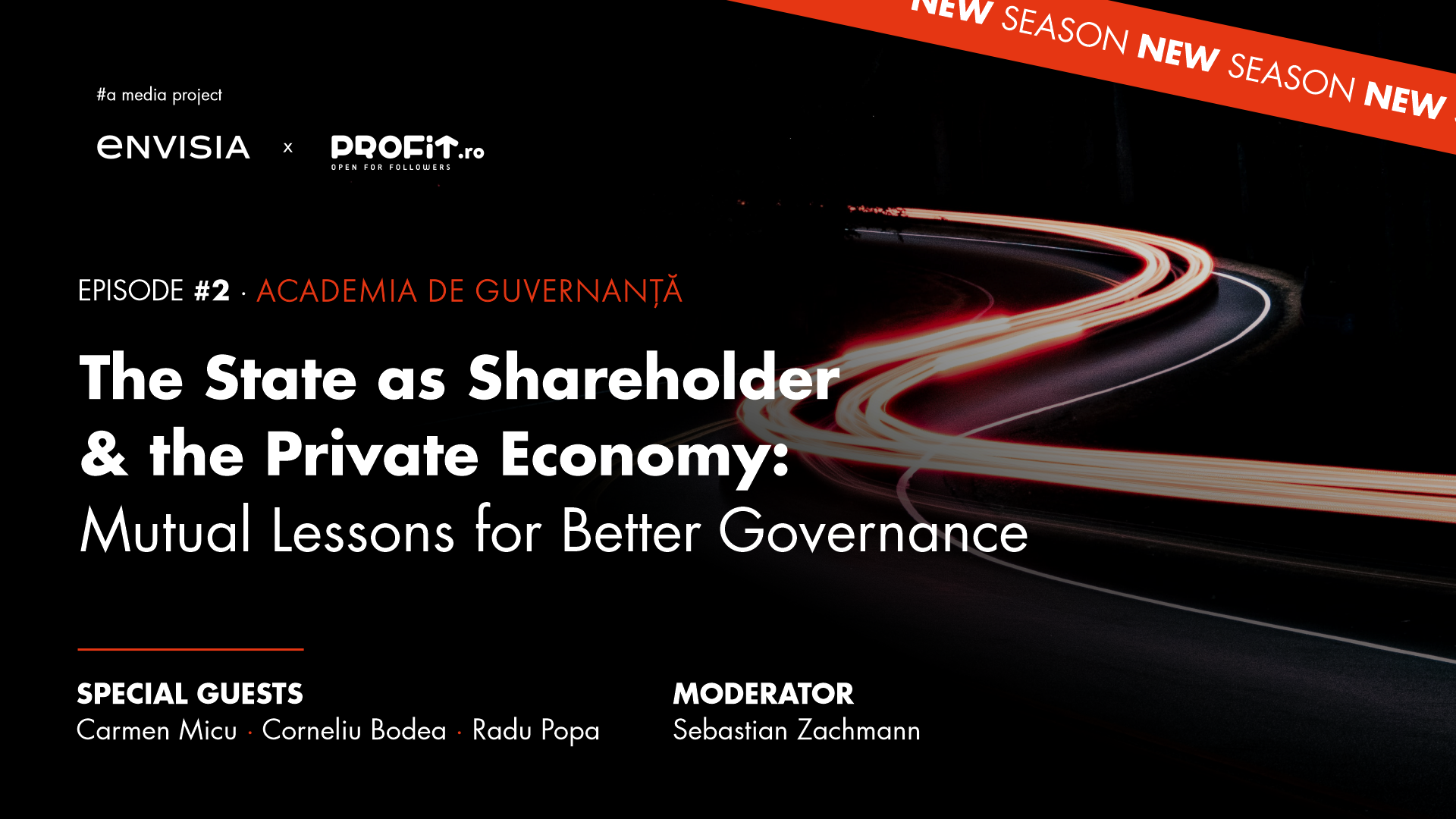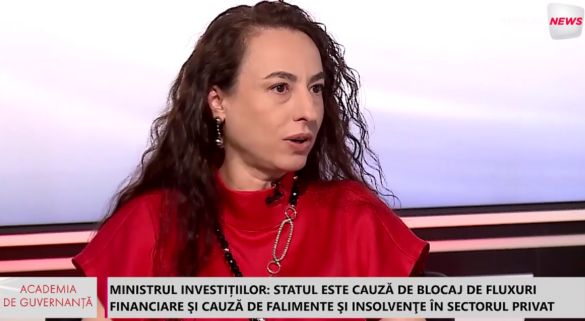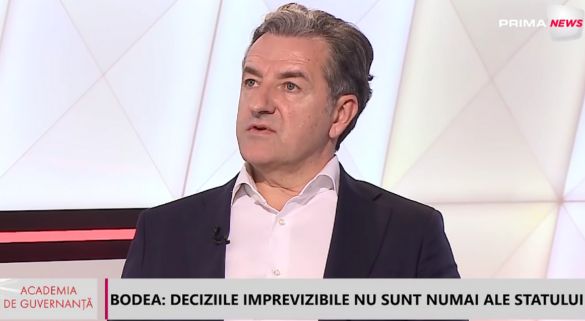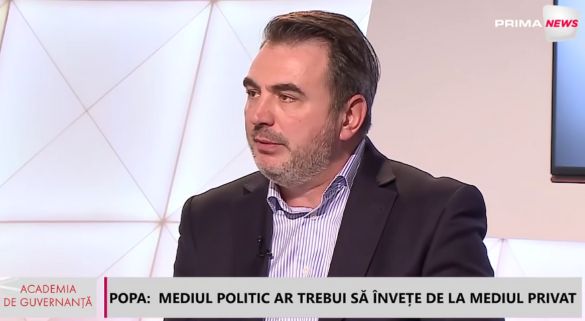The State as Shareholder & the Private Economy: Mutual Lessons for Better Governance

How can the state and the private sector join forces to build a shared culture of governance and strengthen the private economy? This question took center stage at the second edition of Academia de Guvernanță (The Governance Academy), a media project by Envisia, Profit.ro, and Prima News. The initiative brings together voices from business, politics, and education to debate what responsibility, competence, and performance mean for the future of governance in both public institutions and the private economy.
Guests for this edition included Carmen Micu, Co-Founder and CEO of Envisia, Corneliu Bodea, President of the Romanian Energy Center, and Radu Popa, former Member of Parliament and member of the Parliamentary Committee for Industry and Services. Moderator: Sebastian Zachmann.
Building a Common Language: Corporate Governance for SOEs and Private Companies
For Carmen Micu, CEO of Envisia, the key to performance lies in building a shared language of governance—one that transcends ownership structures and applies equally to the private sector and SOEs (state-owned enterprises). “What unites us, essentially, is the desire to do things right. I refer to the idea of common-sense governance, a concept we have been discussing and promoting for a long time. It’s about a discipline of performance that we would like to extend from the private sector to state-owned companies.”

She emphasized that Romania needs corporate governance grounded in competence, education, and transparency to move beyond a purely formal, compliance-driven model and turn boards of directors into genuine instruments of performance.
“In the private sector, you speak about speed and tangible results. What we wanted was to professionalize the areas that seem less responsive, in a way that allows activities to translate into concrete outcomes,” she explained.
The OECD Accession Context: Driving SOE Reform and Administrative Reform
Across all the speakers’ interventions, trust emerged as the key ingredient of modern, effective governance. Although Romania already has a clear legal framework—such as OUG 19 on private-sector management in SOEs—the lack of trust between the state and business remains the biggest obstacle to modernization.
“You can have the best CEO and the most capable Board of Directors, but if the political shareholder intervenes unprofessionally, everything collapses. Trust and predictability are essential to attract investors and consolidate the capital market,” said Corneliu Bodea, President of the Romanian Energy Center.
These principles align with the standards set by Romania’s OECD accession, where institutional performance, transparency, and stability are core criteria for international confidence. In this context, SOE reform and administrative reform are not just technical requirements, but pillars of a broader effort to modernize governance and align Romania with global best practices.
“Trust should concern everyone—private sector, state, and society. There is no real trust between the public and private sectors, and that’s visible in our legislation and policymaking,” Bodea added.
Radu Popa, former MP, confirmed the impact: “Such interference kills trust among private companies and investors. Without trust, we cannot attract investment, nor can we build long-term development.”
Bridging the Trust Gap: The Role of Public-Private Partnerships (PPP)

From the business perspective, Corneliu Bodea stressed that the debate over who manages better—the state or the private sector—is misleading and counterproductive.
“The state has improved its performance significantly, but it cannot claim to be a better administrator than the private sector. Performance in private-sector governance is superior. That’s why this kind of debate should be discouraged—especially by the state,” he said.
Instead, both sides should focus on collaboration through Public-Private Partnerships (PPPs), which can bridge the trust gap and create shared value. Bodea argued that the focus should move beyond profitability toward purpose: “The state’s focus also includes objectives beyond profitability and financial efficiency—public policy goals, above all.”
Although they operate under different logics, the two systems have much to learn from one another. “Governance in state-owned companies is more difficult than in the private sector because there are more spheres of influence, interests, and political interventions. Some state-owned companies are indeed performing well—but mainly because they hold monopolies, not because they are better managed,” said Corneliu Bodea.
From another angle, Carmen Micu underlined the importance of long-term thinking and resilience: “As a shareholder, the state must think in the long term. It must balance social responsibility with the public interest. In the private sector, we’re seeing a new paradigm emerge—the Benefit Corporation: a company that operates for the benefit of all stakeholders.”
Authentic Leadership: The Foundation for Modern Public Administration
From the political side, Radu Popa brought a critical perspective on the public administration system: “During my eight years in Parliament, I never once heard a debate about the difference between government and governance. That kind of discussion happens only in the private sector, among top managers,” he said.
He insisted on the need for authentic and competent leadership—especially in SOES, where decisions have strategic impact: “Romania cannot progress without real cooperation between public administration and the private sector, and without bringing people with solid managerial experience into the public sphere.”

Popa also stressed that governance must begin locally, where decision-making culture is formed: “Local councillors are, in fact, the managers of cities. If they don’t understand what governance means, how can we expect performance at the national level?”
Education and professionalization remain the invisible infrastructure of a shared governance culture. For Carmen Micu, the solution starts there: “What unites us is education. We need to bring all stakeholders to a shared baseline. If people are appointed based on trust, what do we do if they lack the necessary skills? We educate them. It’s a longer process, but a necessary one.”
Radu Popa agreed: “Without authentic leadership, there is no transformation. It’s about mindset, ownership, and integrity. Romania, as a state, has no chance without genuine cooperation with the private sector and without attracting people with proven leadership experience.”
In closing, Corneliu Bodea added that the state would gain significantly by learning from the private sector’s strategic discipline: “It would be an excellent exercise for any minister who acts as a shareholder in state-owned companies to sit down with private-sector shareholders. To understand how they plan, where they draw boundaries between strategy and execution.”
He reiterated: “The state should withdraw ministries from directly managing state-owned companies.”
Five Takeaways for Effective Governance
- Common-sense governance must become a shared standard between the state and the private sector.
- Performance comes from competence, not ownership.
- Education and authentic leadership are the foundations of modern governance.
- Lack of trust between the state and business blocks investment and progress.
- The state should learn from the private sector’s the discipline of strategic planning and avoid political interference.
The Governance Academy
Academia de Guvernanță (The Governance Academy) is a media project by Prima News, Profit.ro, and Envisia—Romania’s first business school dedicated to governance and the professionalization of board members. The show airs every Friday at 20:00 on Prima News, with a re-run on Tuesday at 22:00, and is also available online on Profit.ro. You can watch the full episode here.
About Envisia
Envisia is Romania’s first business school dedicated to corporate governance and the professionalization of board members. Through accredited international programs, masterclasses, and media projects such as The Governance Academy, Envisia contributes to shaping leaders who transform governance principles into measurable performance and trust.
Learn more at www.envisia.eu.
Recommended articles
Leadership, Boardroom Dynamics & Crisis Response
Leadership, Boardroom Dynamics & Crisis Response
Governance & Board Effectiveness
Future of Boards & NED Careers
Future of Boards & NED Careers
ESG & Risk Oversight
Leadership, Boardroom Dynamics & Crisis Response
Governance & Board Effectiveness
Governance & Board Effectiveness
Leadership, Boardroom Dynamics & Crisis Response
Future of Boards & NED Careers
Governance & Board Effectiveness
Governance & Board Effectiveness
Governance & Board Effectiveness
Governance & Board Effectiveness
Future of Boards & NED Careers
Leadership, Boardroom Dynamics & Crisis Response
Future of Boards & NED Careers
 BACK TO ARTICLES
BACK TO ARTICLES
 Facebook
Facebook Linkedin
Linkedin
